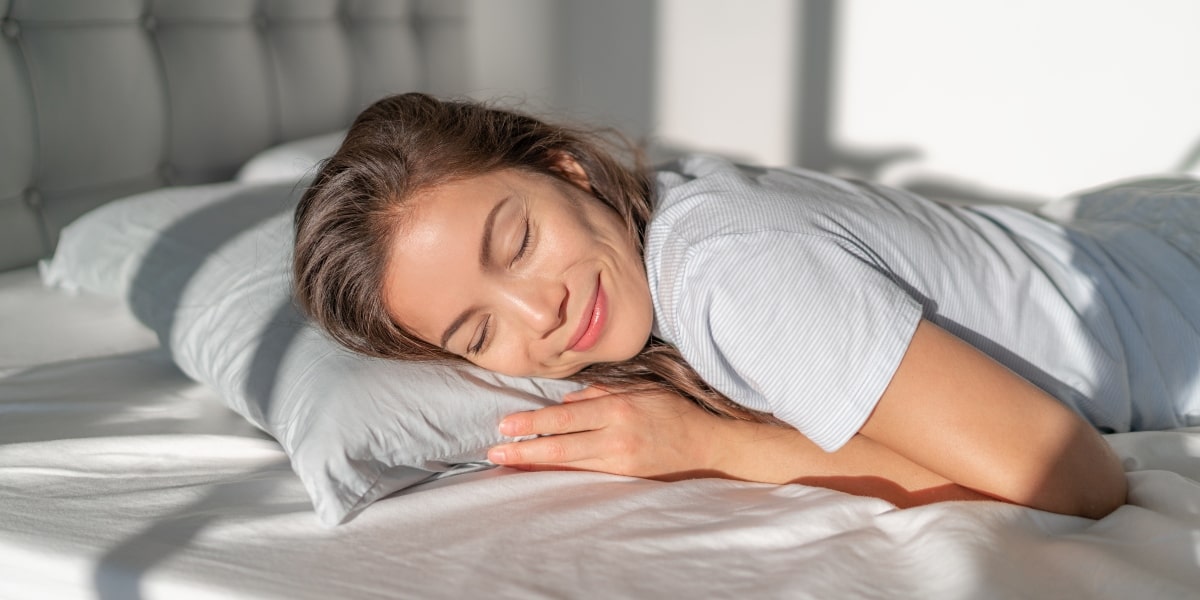10 Tips for Better Sleep
We’ve all had those mornings when, from the moment we open our eyes, we know we didn’t get enough sleep or sleep well. While this may happen from time to time without causing any real harm, consistently not getting enough sleep or good sleep can have a huge impact on our health. If you are tired of being tired, you are probably ready to try anything to get a good night’s sleep. Fortunately, getting the rest you need is easier than you might think.
Disruptions to your circadian rhythm can also disrupt your sleep. The circadian rhythm is a group of natural processes, such as waking and sleeping, which your body goes through every 24 hours. Your circadian rhythm maintains control over your body clock and sleep by regulating hormones, such as melatonin that causes sleepiness.
Sleep is essential for good health. In fact, the Centers for Disease Control and Prevention (CDC) says that people who sleep less than 7 hours a night are more likely to experience chronic health problems, such as heart disease, asthma, COPD, cancer, arthritis, heart attack, stroke, depression, chronic kidney disease, and diabetes.
Need More Sleep? Try These 10 Tips to Sleep Better Tonight
1. Stick to a sleep schedule
Go to bed and wake up at the same time every day—even on weekends. Being consistent with your sleeping schedule helps support your circadian rhythm. The National Sleep Foundation says that healthy adults should get between 7 and 9 hours of sleep each night.
2. Reserve the bed for sleep and sex
Avoid watching TV or using digital devices while in bed—teach your body and brain that laying in bed is strictly for sleep or for sex. If you cannot fall asleep within 20 minutes of laying down, get out of bed and read, listen to music, or engage in some other relaxing activity.
3. Increase your daytime light exposure
Exposure to bright, white lights during waking hours can help keep your circadian rhythm in good condition, so take a walk outside or install bright artificial lights indoors. Research shows that just a couple hours of exposure to bright light during the day can improve the quality of sleep, reduce the time it takes to fall asleep by as much as 83%, and increase the amount of sleep by 2 hours.
4. Reduce blue light exposure late in the day
While exposure to light during the day can help you sleep better, exposure to light at night—especially blue light—can disrupt your circadian rhythm to keep you awake. Electronic devices, such as computer screens and smartphones, emit large amounts of blue light. To reduce the harmful effects blue light exposure has on sleep:
- Wear glasses that block blue light
- Stop watching TV or using devices 2 hours before going to bed
- Download or install apps that limit blue light on cell phones and computer screens
5. Avoid caffeine later in the day
Caffeine can improve your mental sharpness, but it can also keep you awake at night. Research shows consuming caffeine up to 6 hours prior to bedtime can significantly worsen the quality of your sleep.
6. Consider taking melatonin or other supplement to improve sleep
While it is best to address the underlying problems that are preventing you from sleeping, taking melatonin or other supplements may be an effective short-term solution to sleeplessness. Melatonin supplements provide a boost of melatonin, of course, while other supplements promote relaxation to help you sleep. Other supplements include ginkgo biloba, lavender, valerian root, magnesium, glycine, and l-theanine.
7. Avoid alcohol
Alcohol alters your melatonin levels and can affect other hormone levels, such as human growth hormone (HGH) to disrupt your circadian rhythm. Drinking alcohol can also cause or increase your symptoms of snoring, sleep apnea, and disrupted sleep patterns.
8. Improve your sleeping environment
Make sure your bedroom is conducive to getting a good night’s sleep. The best sleeping environment is one that is dark, quiet, and relaxing. Set the thermostat at a comfortable sleeping temperature – the National Sleep Foundation says that the best temperature for sleeping is about 65 degrees for most people. Using a fan can help keep the room cool and drown out noise.
9. Avoid large meals or skipping meals in the evening
Eating late at night can negatively affect the quality of your sleep; a late meal can even trigger the production of HGH and suppress melatonin. Going to bed on an empty stomach may also cause hunger that disrupts your sleep.
10. Red light therapy for sleep
If you have trouble sleeping and none of the home remedies have worked, try red light therapy to improve your sleep. Research shows red light therapy improves sleep quality. Red light therapy devices emit special wavelengths of light that stimulate the production of melatonin. Also known as photobiomodulation, red light therapy can also alleviate pain and help you feel better, promote relaxation, and improve your mood and overall mental health to help you get a better night’s sleep.
If you are having trouble falling asleep, staying asleep, or waking up feeling groggy, consider red light therapy—this unique approach to health and wellness can help you sleep better without the use of supplements or sleeping pills.

